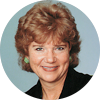An article in the July 1, 1996 issue of Dynamic Chiropractic referred to the Pew Health Professions Commission's latest, report "Critical Challenges: Revitalizing the Health Professions for the Twenty-First Century." This report outlined the major challenges confronting a changing health care system, the impact on health care workers, and outlined recommendations for health care professionals and educational institutions for the 21st century. While much has been studied about access and financing, very little attention has been paid to the dynamics and quality of care resulting from managed care. What has interdisciplinary care to do with gerontology? The answer is simple. Most middle aged and older adult patients see one or more other health care practitioners besides chiropractors. It is this basic relationship between patient and the care provider that forms the crux of the U.S. health care system. It is essential that chiropractors be more aware of the combined impact other health care professionals have on their patients, and begin to form working relationships with other providers.
Have you ever thought how great it would be if once every several months you and a group of other health care professionals would sit down and review mutual patient progress? Say you were working with a 73-year-old adult female Filipino patient who sought your care for head and neck pain after awakening with a sore jaw. What would it be like if you had access to information about this patient not necessarily in your area of expertise (dentist, internist, podiatrist, rheumatologist, ophthalmologist, Filipino home health aide)? Certainly this would give you a broader understanding of the patient's physical changes and function; also how the individual is affected by her environment: socially, economically, culturally, psychologically, etc. Access to the different approaches, points of view, assessments and findings of various health professionals may prompt you to revise your care regimen or treatment plan in light of additional information about the patient. Plan on it. With an aging population, and a managed care atmosphere, you will be interacting more frequently with other professionals, be held more accountable for your treatment effectiveness and ability to work as a team member towards favorable outcomes for the patient.
Another report, this one from the Pew Commission-Fetzer Institute Partnership, states there are three relationships that practitioners must form in the future: relationship with the patient; relationship with the community where the patient resides; relationship with other health care practitioners. Interdisciplinary care again! The report states practitioner relationships with their patients, their patients communities, and other health care practitioners are central to health care and are the vehicle for putting into action a paradigm of health that integrates caring, healing, and community. Health determinants are larger than just going to a doctor and following a regimen of care when sick or injured. Health determinants lie in communities where we live, in the cultures that make up our family traditions and duties, socially, economically, environmentally and so on. Patterns of illness and injury are so complex yet sometimes so subtle that we cannot possibly know all the areas affecting the health and well-being of our middle aged and older patients; unless we integrate and synthesize information from a variety of sources, with different perspectives that collectively form the impact on the life of the patient.
How shall we go about building these interdisciplinary relationships? Begin by reflecting on your current knowledge, skills and experience. Keeping abreast of new information, skills and complementary treatments will update perspectives. Value diversity in other healing arts and methods of treatment. Read and show an interest in learning about various cultural or traditional approaches to a problem. Listen with an open mind, observe, communicate effectively and learn cooperatively. Strive to create teams or integrate into professional groups whose common goal is the health of the patient. Resolve conflicts based on problem resolution, not personality type; share responsibility for the patient and advocate for better quality health care. Be accessible. Develop a trust with colleagues, support group efforts and remain open and humble to new knowledge. Participate in community events, work with organizations and strive for the big picture. Collaborate willingly and give freely of knowledge and information.
It is interesting to note that the Pew report speaks of the necessity of adding philosophical foundations of an innate organism to the scientific foundations of the body as a mechanism. The report notes the alternate paradigm that refers to "innate healing powers of the organism, and living beings ... self-organizing systems, maintained in a state of dynamic equilibrium by a continuous information flow within themselves and between themselves and their environment."(p20) If that doesn't sound like chiropractic philosophy, I don't know what does. The time is right, the way is open. Interdisciplinary care is a necessary component of future practice in managed care. We must refine our knowledge and skills and seek to form working relationships with other health care professionals. Stay tuned, there's more.
References
Pew Health Professions Commission. Critical Challenges: Revitalizing the Health Professions for the Twenty-First Century: San Francisco: UCSF Center for the Health Professions, 1995.
Tresolini, CP and the Pew-Fetzer Task Force. Health Professions Education and Relationship-centered Care. San Francisco, CA: Pew Health Professions Commission, 1994.
Barbara Zapatocky, DC
Lakeside, Montana
Click here for previous articles by Barbara Zapotocky-Cook, DC.





